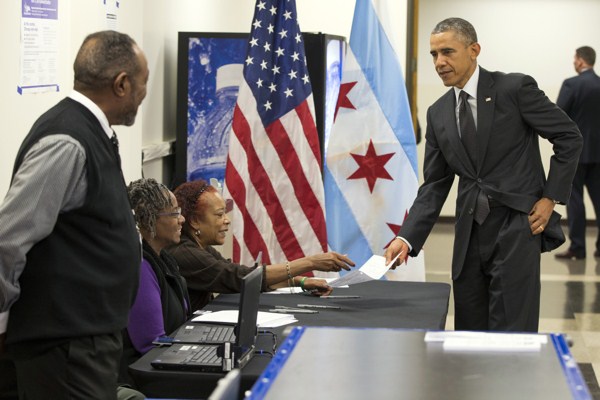Traditionally, U.S. midterm elections have been referenda on how a president has managed domestic affairs, a vote of confidence or rejection of his various policy choices. International events, however, can emerge as issues in the campaign to the extent that they indicate whether the country is moving in the right or the wrong direction.
In 2006, for instance, the Bush administration’s mismanagement of the Iraq War became a factor in the recapture of both houses of Congress by the Democrats because it was put forth alongside domestic disasters—such as the handling of Hurricane Katrina—as part of an effective campaign slogan that “Americans can do better.” Now the Republicans are seeking to return the favor, not only by maintaining their control of the House of Representatives but by becoming once again the majority party in the U.S. Senate. With control of both chambers of Congress, the GOP would be in a position to shape the policies and reach of the last two years of President Barack Obama’s term and could better position a Republican candidate to regain the White House in 2016.
Earlier this year, the conventional political wisdom was that problems with how the Affordable Care Act was rolled out, as well as a lackluster domestic economic recovery, would dominate the 2014 midterm campaign. To the extent that events over the past several months have improved the domestic situation, reducing the saliency of such appeals, it is not surprising to see increased discussion of Obama’s handling of foreign affairs finding its way into many of the House and Senate contests. A series of crises—the Ukraine faceoff with Russian President Vladimir Putin, the stunning rise and newfound reach of the so-called Islamic State (IS) in the Middle East and the specter of an Ebola epidemic finding its way into the American heartland—have revived security questions as voting issues.

